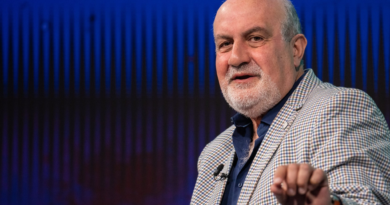CEOs share the career-defining moments that launched them to the corner office
Good morning! Fortune writer Natalie McCormick here, filling in for Ruth.
Many CEOs can pinpoint the pivotal moment in their careers that set them on a path to the corner office. Whether stepping up to manage a complex project, overseeing a turnaround, or mastering a critical leadership skill, these experiences often prove transformative in advancing executives’ careers and shaping them into stronger leaders.
At this year’s Fortune Global Forum in New York City, chief executives from an array of global companies gathered to hear insights from their peers and reflect on the defining moments and skills that helped place them at the top.
The below interviews have been edited and condensed for clarity.
Javier Rodriguez, DaVita CEO
My dad always told me, “Don’t be an employee. Always act like an owner.” When I joined DaVita, we had a turning point at the company. I remember raising my hand and saying, “Put me wherever you want. I want to be helpful during this time.” They sent me to an area that I knew nothing about, which was claim management. But the team had thousands of people that needed leadership, so I stepped in and learned the business. The new CEO asked who stabilized it, and I explained that I volunteered because more hands were needed. From there on, I was given more opportunities.
Kate Johnson, Lumen Technologies CEO
I took on a team at a bank that needed to go from worst-performing to best-performing. It was an IT organization, and everything needed to change: the talent, the process, the business outcomes that we were seeking. And the thrill that I got from it helped me realize that I love leading change, and that’s been defining in my career for sure.
Joey Wat, Yum China CEO
Ten years ago, KFC China, just like many other brands, had a bottleneck. What we were offering was not good enough for our customers, and the same-store sales were in double-digit negative growth. Our biggest problem was the entire industry and economy moving into the digital economy, with a huge technology change to the marketing and the way that we reached our customers. I facilitated the transformation, and my team has done an amazing job turning around KFC China.
Chris Hyams, Indeed CEO
Coming right out of college, my first job was working in an adolescent psychiatric hospital. Following that, I taught special education public high school in rural Vermont for two years, and none of this was part of a larger strategy to go into business later and become a leader. But I will say that working in the field of technology, it has served me extraordinarily well to have a background that was really embedded in human interaction and seeing challenges that individual people faced in their lives. As technologists, we build tools for humans, and sometimes, it’s very easy to forget that and just think about the technology piece. The way that I show up as a leader within our organization and the way that I think about the problems we’re trying to solve for our customers are probably more shaped by my first experiences than anything I learned studying computer science.
Natalie McCormick
natalie.mccormick@fortune.com
On Dec. 4, hear from Future 50 executives on how they harness strategy, technology, and talent to drive growth in uncertain times. Register here.
Leadership lessons
Dave Gitlin, CEO of the HVAC giant Carrier, once turned down the opportunity to run Boeing. He’s now the best industrial CEO in America. Gitlin has climbed the corporate ladder by quietly insisting on excellence, writes Fortune’s Shawn Tully.
“That means standing on the factory floor while pressing a worker to trim seconds on the time it takes to install a valve. Or revamping the executive comp system to pay out only if Carrier way outperforms its rivals.”
News to know
As Donald Trump prepares to take office, major U.S. banks are celebrating the potential rollback of strict financial regulations and delays in consumer fee reforms that could impact their profits. WaPo
Southwest Airlines, once renowned for consistent profits and a simple, successful strategy, has struggled to adapt to evolving air travel demands. NYT
In a rare act of criticism against his party, Republican donor and Citadel founder Ken Griffin expressed concern over President-elect Donald Trump’s tariff and immigration policies and their impact on inflation. Griffin also signaled openness to selling a minority stake in his firm. Financial Times
Investors are rattled following the DOJ’s proposals to restrict Google’s distribution dominance, including banning paid search deals and potentially selling Chrome, a key driver of Google’s search business. BI
New Boeing CEO Kelly Ortberg urged employees to stop complaining and focus on outperforming Airbus. “Don’t sit at the water cooler and bitch about people,” he said. Fortune
Smarter in seconds
Catch of the year. Red Lobster’s new CEO breaks down his $70 million comeback plan
Row your boat. Google’s departing EMEA president is a former Olympian and likes to kick off his morning rowing on the River Thames
Thirty-five-year climb. How a new Fortune 500 CEO went from intern to head of a $13 billion company




